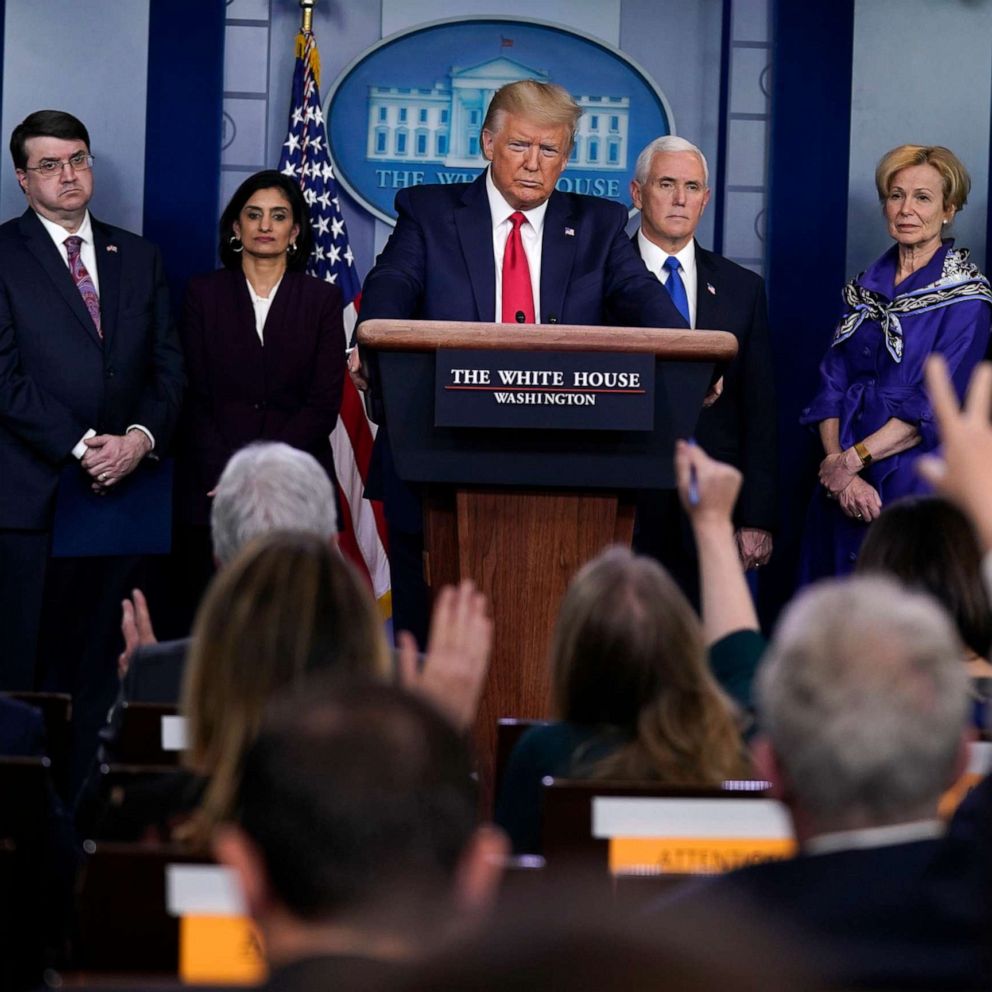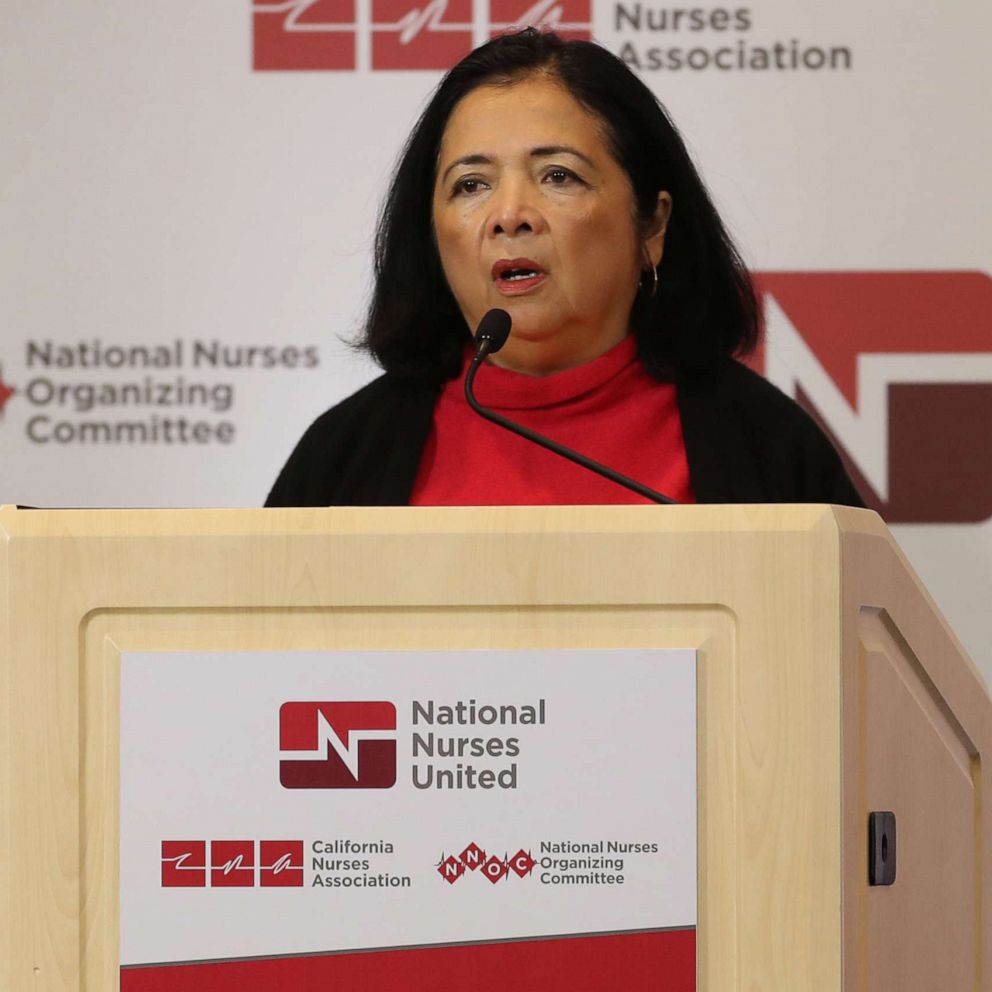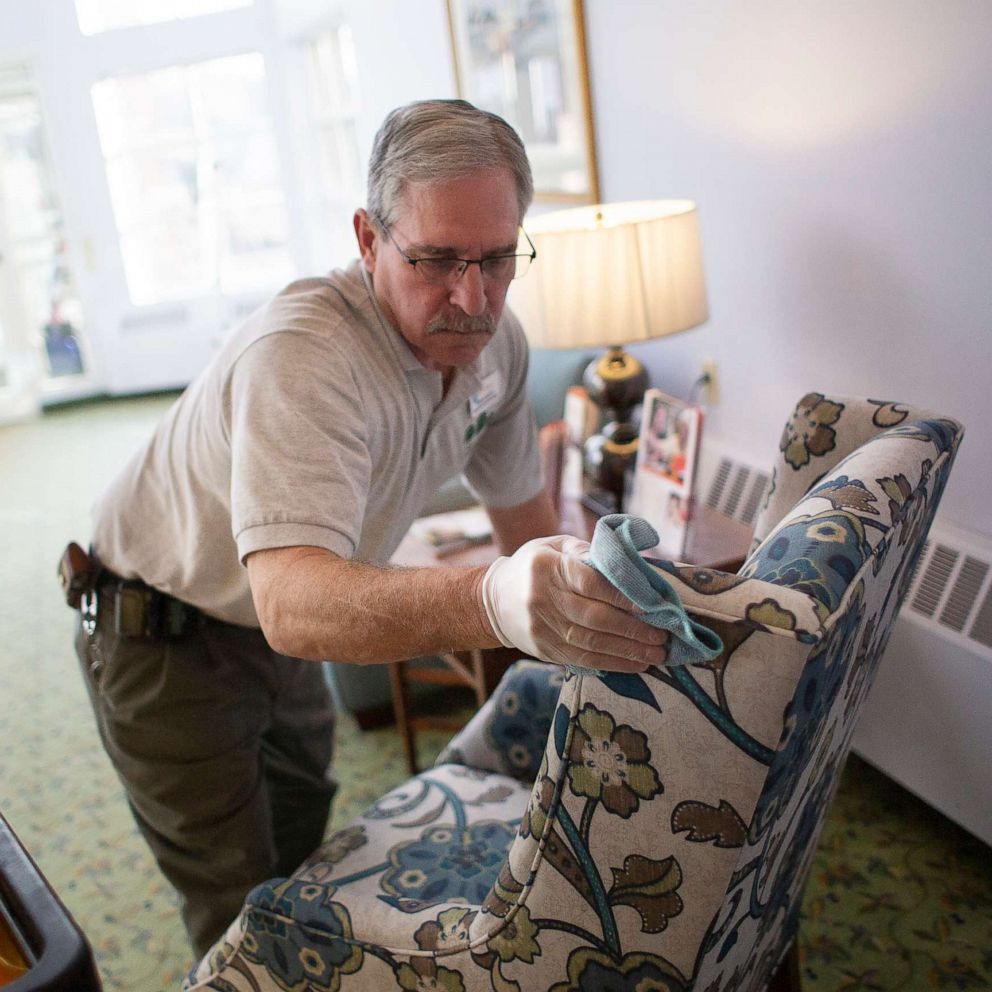Concerns over preparedness mount as VA hospitals brace for new coronavirus wave
More than half of veterans are at higher risk of COVID-19, officials said.
As the network of hospitals run by the Department of Veterans Affairs braces to handle a growing load of novel coronavirus cases, hospital staff are preparing for the worst and some are raising alarms.
"We are really concerned about not having enough equipment," said Irma Westmoreland, a VA nurse and union leader from Augusta, Georgia.
VA hospitals haven’t yet experienced a surge like the one seen in Seattle, where a senior living home was at the center of the outbreak. But more than half of all veterans are over the age of 60 and potentially more vulnerable to COVID-19, according to VA officials.
Tune into ABC at 1 p.m. ET and ABC News Live at 4 p.m. ET every weekday for special coverage of the novel coronavirus with the full ABC News team, including the latest news, context and analysis.
"We will be continuing to ramp up our supplies in the event that we do get that surge," VA Secretary Robert Wilkie said in an interview with ABC News.
The VA is tracking about 44 cases nationwide, according to the latest figures from the department. In one case, a veteran in Portland, Oregon, died last week after becoming infected.
Mounting concern over hospital bed space and protective gear for nurses has raised questions of whether the massive government health care provider can step up. VA nurses and union leaders say hospital managers haven’t done enough to prepare their staff.
"We’re nurses. We’re scientists. We know what to do," Westmoreland told ABC News "All we’re asking for is to be safe."
Some nurses are getting slowed down, she said, because they’ve had to put in specific requests for personal protective equipment -- depending on what sort of patient they’re dealing with.
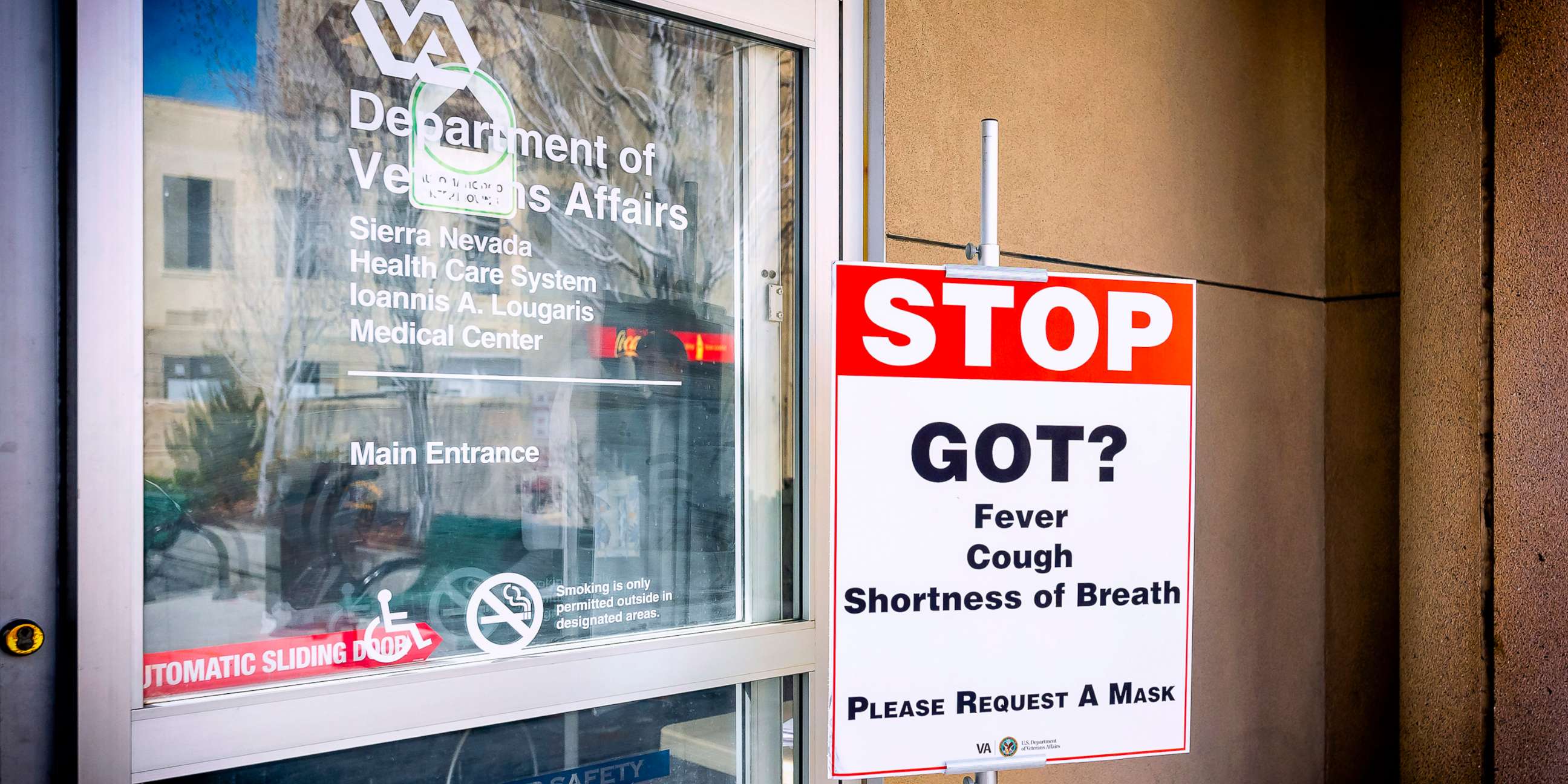
The VA announced last week that it would screen all hospital visitors tasked with examining patients at the front door. But with resources in limited supply, those screenings aren’t always conducted by trained medical staff wearing full protective equipment, according to multiple nurses and labor union representatives contacted by ABC News.
Pressed on the viability of their supply chains, Wilkie assured patients and staff across the country that supply chains were stable and sufficient.
"Our supplies are stable," Wilkie said, noting that new shipments of masks were underway. "Talk to your leadership. The supplies are out there."
But frontline hospital workers have been frustrated by the lack of pre-planning.
Fewer than half of registered nurses said their employers had informed them about detecting and responding to COVID-19 cases, according to National Nurses United, a labor union that represents nurses across the country including those at VA hospitals.
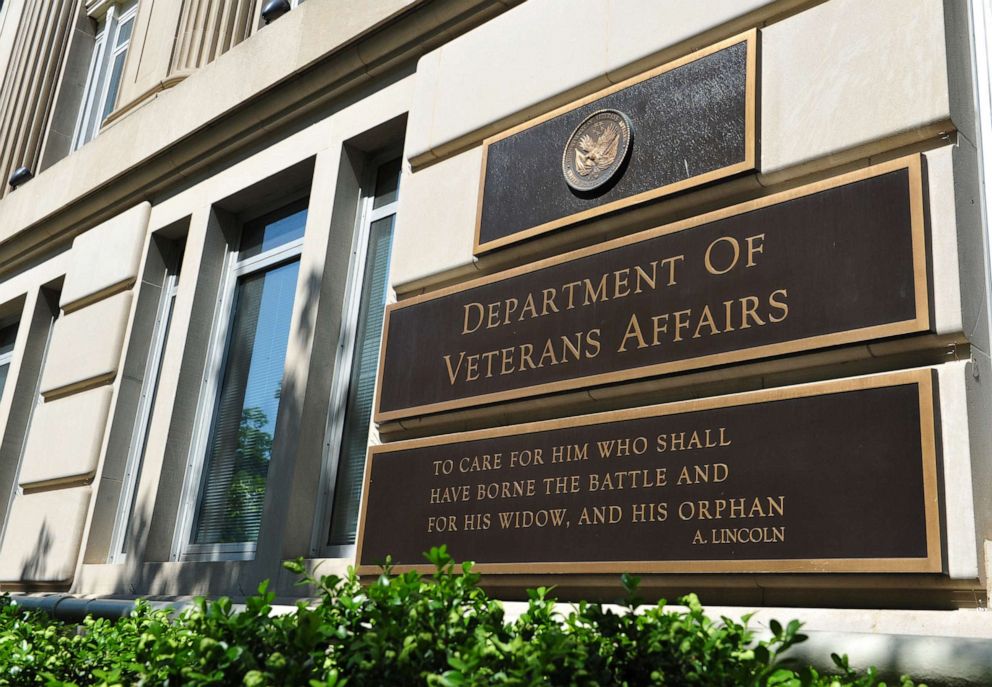
About a third of nurses believed they had enough personal protective gear on hand, according to the NNU survey, which was released earlier this month.
The confusion comes in part from the VA's reference to Centers for Disease Control and Prevention guidance, which does not recommend that healthy people wear masks, only those infected.
But in a statement to ABC News, the VA acknowledged that face masks were "crucial" for hospital workers.
Other issues stemming from staffing shortages were a problem for the VA even before the coronavirus pandemic. The department reported nearly 50,000 vacancies last year, prompting concern from lawmakers tasked with department oversight.
Ronda Risner, a VA nurse and union leader in Dayton, Ohio, said she was so concerned about her coworkers that she volunteered to train everyone in her department on how to properly wear medical-grade masks.
"We need the equipment, we need the training and we need the staff in order to be able to care for patients in this country," Risner said.
Aside from caring for U.S. servicemembers, the VA’s mission includes serving as a backup health care network for the general public during a national crisis. In a change that added to confusion over mixed messages from department leaders, that mission statement was scrubbed from a VA Department of Emergency Management web page last week.
What to know about coronavirus:
- How it started and how to protect yourself: coronavirus explained
- What to do if you have symptoms: coronavirus symptoms
- Tracking the spread in the US and Worldwide: coronavirus map
The statement remains elsewhere on the VA website, but it's unclear why the emergency management page was changed.
Addressing the possibility of the VA directing it's resources to support the private sector, Wilkie said the agency is ready and willing.
“We plan for that every day," he said Wednesday during a White House briefing. "We’re gaming out emergency preparedness scenarios and we stand ready when the president needs us to expand our mission.”
ABC’s Stephanie Ebbs, Jon Schlosberg and Sophie Tatum contributed to this report.
